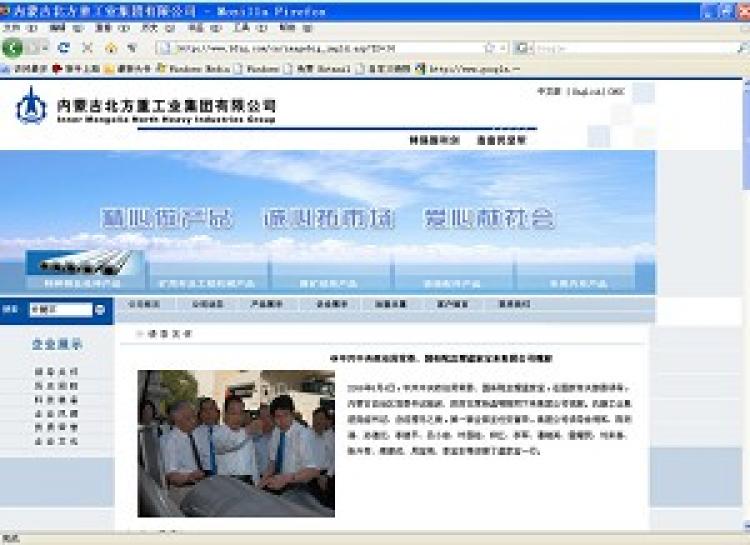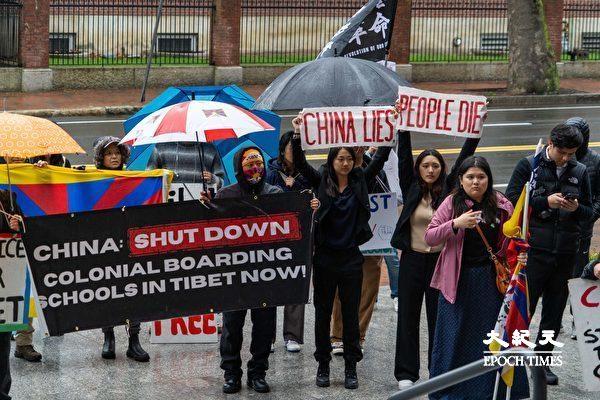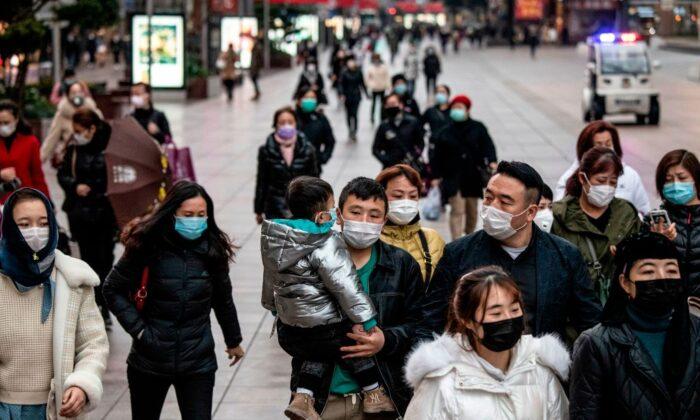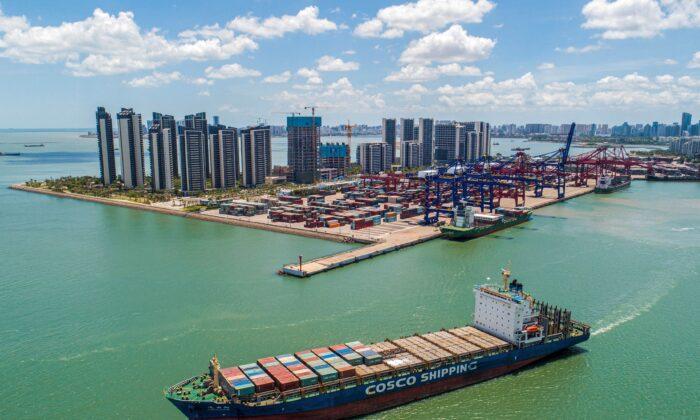At the top of its game in China’s defense industry, the Inner Mongolia North Heavy Industries Group Corp. Ltd. (NHIC) is also one of the world’s largest defense companies. By its own admission it employs 16,000 workers, and had a year’s return of over 10 billion yuan (US$1.46 billion).
NHIC’s business has been so good lately that workers have been called upon to work overtime every day.
Yet from 2006 to 2009, the company withheld 200 to 800 yuan (US$29.28 to $117.13) from employees’ paychecks each month, without offering a reason.
Employees have recently appealed to both the company and the union for the return of back wages, which has made them the object of derision.
Employee experience
In a recent phone interview, an employee (name withheld) told The Epoch Times that for four years, from 2006 to the end of 2009, the company had deducted 500 yuan (US$73.25) from his 1,800 yuan (US$263.69) salary every month. Combined with soaring prices and his child’s educational expenses, life became difficult.
He and his co-workers have recently demanded the return of the money.
The employee said that when they went to the company administrator and demanded their withheld salaries, they were told to report the matter to the party secretary.
They went to see the party secretary Wang Liangyun, who told them, “This is the office of the party, not some place for you workers to come. If you want to speak to me now, you have to stand outside the office door.”
The workers became angry, telling him that there was no place to reason within China, so they would find media abroad to report the matter.
Wang replied, “Our Party is open and above board and there is freedom of speech: you are welcome to report it.”
Union President: ‘stop dreaming’
Some workers said that union dues had also been deducted from their salaries from the day they started working, but they had never witnessed any protection or advantages as union members. They said they had hopes that this time the union could stand up to fight for members’ rights.
However, upon handing a written request to the union president and asking for a receipt, the president looked at them sideways and said, “You just wait for it.”
Xu Beifang, a former NHIC employee who now lives abroad, said in an interview that the current union president was originally a minor foreman. Because he helped to plunder the salaries of workers and gave money to his superiors, the company leader thought he had made a contribution and recommended him for union president. This struck Xu as quite ironic.
He provided an example of the union president’s vicious treatment of workers.
“There are many iron scraps in the factory,” Xu said. “The workers’ shoes often got punctured and their feet would bleed. When workers asked the union president for protective shoes, he told them that they did not deserve protection and were not worthy of wearing such shoes.”
“The workers currently only receive a salary of less than 2,000 yuan (US$292.95) per month,” Xu said. “Yet 200 (US$29.30) to 800 yuan (US$117.14) [per month] were deducted from each one of them, to be handed over to some company administrators. The workers that refused to pay uniob dues would be given a salary of less than 1000 yuan (US$146.42) and faced prospects of being laid off or transferred.”
Xu said that the NHIC has a long history of truncating salaries. From 1997 to 1998 they made deductions from workers’ paychecks for an entire year, also without giving any reason.
Over 30 workers co-signed a petition asking for the union to protect their rights. They were told by the union president, “Stop dreaming. The union is not here to serve you. Its duty is to protect the company’s interests.”
The workers had sued the NHIC workers’ union in 1998, but the case was thrown out, under the pretext that the matter was outside the scope of the court.
Afterward, employees disclosed the situation to foreign media. According to Xu, out of pressure and in order to placate the workers, the management gave each worker 100 yuan at the 1998 Spring Festival, so that they could at least get through the holiday. Xu however, was sentenced to four years in prison.
Xu posed the question that with an annual production of over 10 billion yuan and an average worker salary of slightly over 1,000 yuan ($146.42,) where did the enormous profit and production assets go?
“The difference is too huge,” he said, “which compels people to ponder where the money has gone. Was it turned over to the state, or was it confiscated by individuals? The regime has said that workers are supposed to be the masters, but the workers have nothing.”
“I think this black hole is worth pursuing,” he added.
Arms buildup ‘suspicious’
Separately to the wage issue, Xu said that the overtime workers are being asked to do at NHIC is going into producing arms at full capacity. This scares Xu. “Isn’t this surreptitiously preparing for war?” he asked rhetorically.
“It feels like preparing for a big war, otherwise why would you ask the workers to work overtime every day? What will all these arms be used for?
“The world is now in a time of peace. In peace time, the production of arms should be reduced, but China’s arms production continues to rise. What is it for? I am suspicious.”
The Epoch Times’ attempts to contact the Inner Mongolia North Heavy Industries Group were unsuccessful.
Read the original Chinese article






